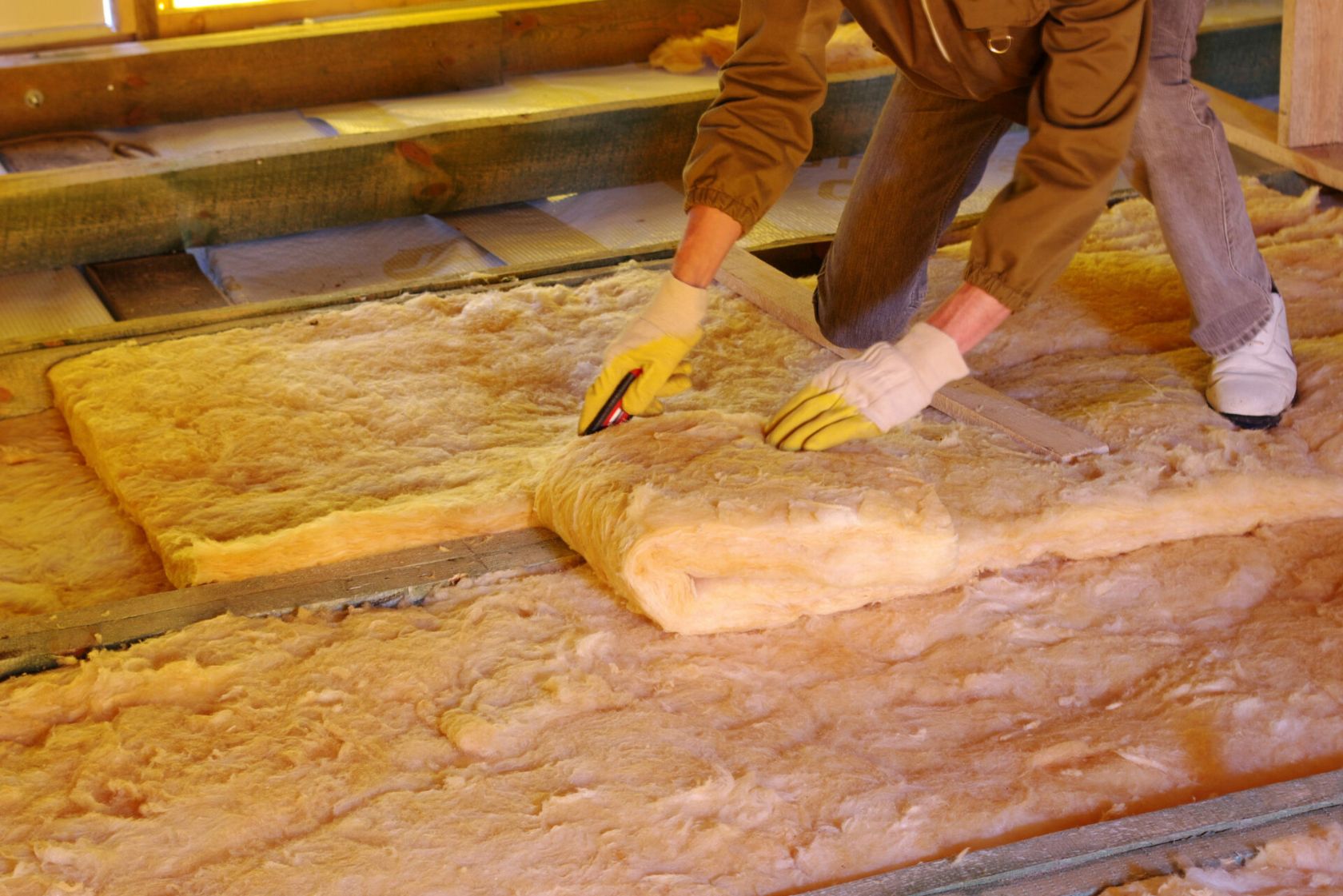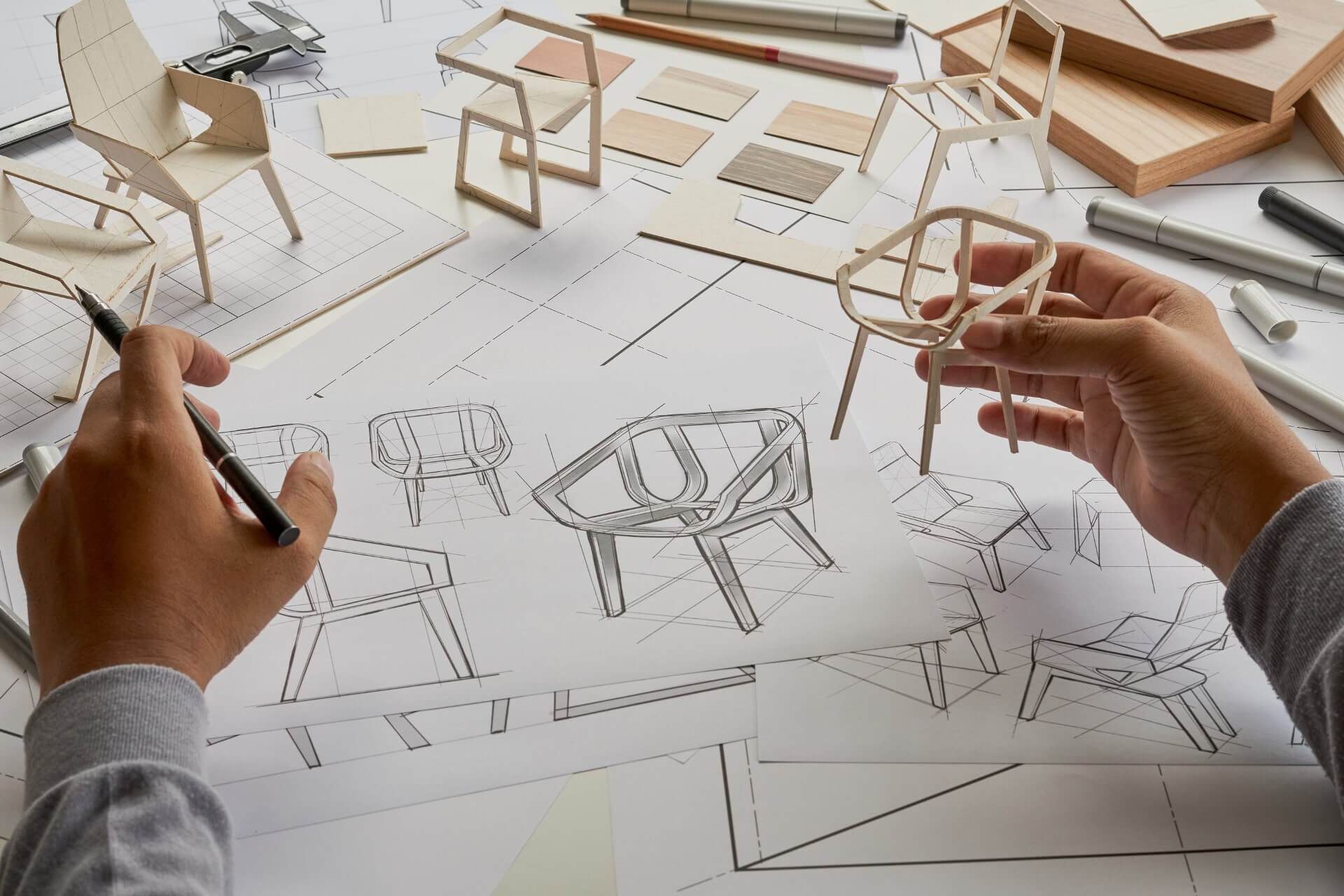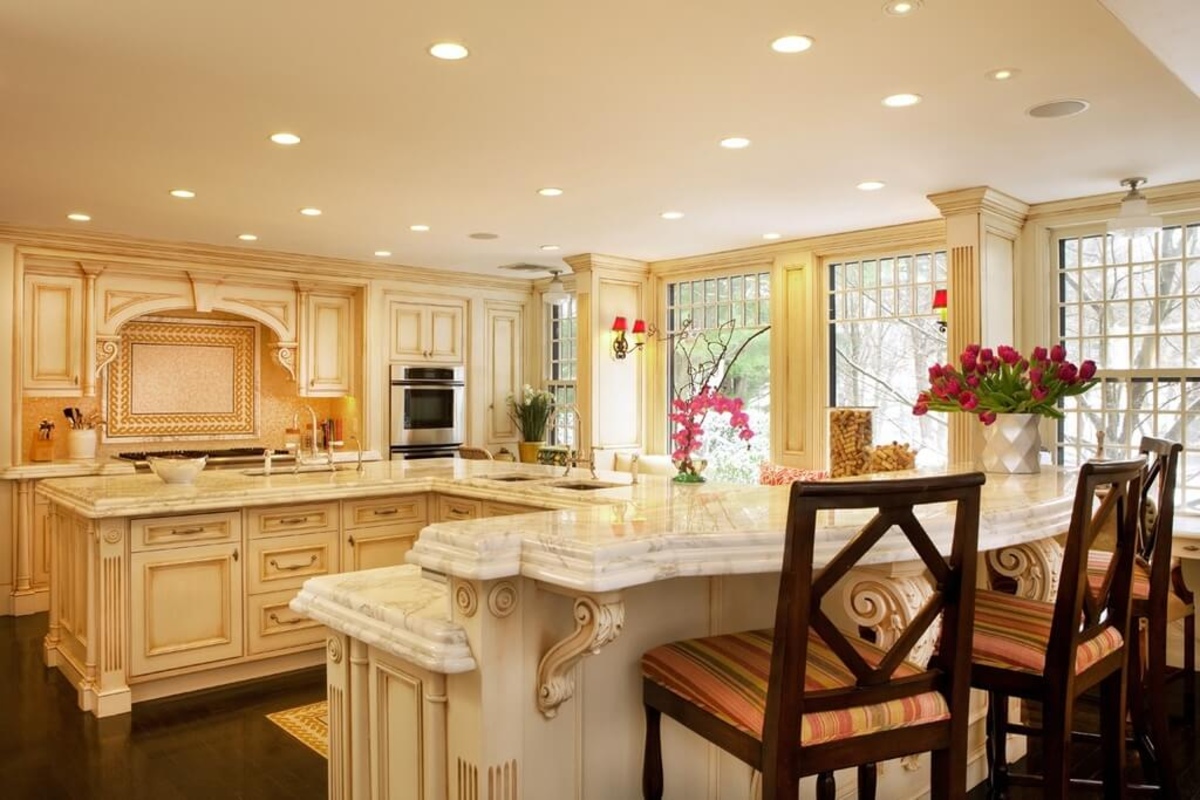Home>Furniture & Design>Interior Design Trends>How To Become A Home Decor Designer


Interior Design Trends
How To Become A Home Decor Designer
Modified: October 20, 2024
Learn how to become a successful home decor designer and stay updated with the latest interior design trends. Start your journey to a rewarding career in interior design today!
(Many of the links in this article redirect to a specific reviewed product. Your purchase of these products through affiliate links helps to generate commission for Storables.com, at no extra cost. Learn more)
**
Introduction
**
Are you passionate about creating beautiful living spaces? Do you possess a keen eye for design and an innate ability to harmonize colors, textures, and furniture to transform a house into a home? If so, a career as a home decor designer might be the perfect fit for you. This dynamic and rewarding field offers the opportunity to unleash your creativity while making a meaningful impact on people's lives.
As a home decor designer, you have the power to shape environments and evoke emotions through your work. Whether it's selecting the perfect accent pieces to complement a room's aesthetic or completely revamping a space to reflect a client's personality, the possibilities are endless. However, embarking on this career path requires more than just a passion for design; it demands a blend of education, skills, networking, and a unique style that sets you apart in the competitive world of interior design.
In this comprehensive guide, we will explore the steps to becoming a successful home decor designer, from acquiring the necessary education and honing your skills to building a standout portfolio and establishing a strong professional network. By the end of this journey, you will be equipped with the knowledge and confidence to pursue your dream career in home decor design. So, let's dive in and uncover the secrets to unlocking your potential in this exciting and fulfilling industry.
**
Key Takeaways:
- Education and training in interior design are crucial for becoming a successful home decor designer. Continuous learning, hands-on experience, and staying updated on design trends are essential for thriving in this creative field.
- Building a diverse portfolio, networking within the design community, and actively seeking job opportunities are key steps in establishing a fulfilling career as a home decor designer. Embracing creativity, flexibility, and strategic marketing can lead to rewarding roles within the industry.
Read more: How To Become A Home Decor Blogger
Education and Training
**
While innate creativity and a passion for design are invaluable assets in the world of home decor design, obtaining formal education and training can provide a solid foundation for your career. Pursuing a degree in interior design, architecture, or a related field from an accredited institution can equip you with the essential knowledge and skills to thrive in this competitive industry.
Many colleges and universities offer comprehensive programs in interior design, covering topics such as space planning, color theory, furniture design, and architectural principles. Additionally, courses in art history, textiles, and CAD (computer-aided design) software can broaden your understanding and proficiency in the field.
Internships and apprenticeships are also invaluable opportunities to gain hands-on experience and insight into the day-to-day realities of home decor design. Working alongside experienced professionals allows you to observe their creative process, learn about industry standards, and develop practical skills that are essential for success.
Furthermore, pursuing certifications, such as becoming a Certified Interior Decorator (CID) or obtaining LEED (Leadership in Energy and Environmental Design) accreditation, can enhance your credentials and demonstrate your commitment to excellence in design and sustainability.
Continuous learning is crucial in this ever-evolving field, so staying updated on the latest trends, technologies, and materials through workshops, seminars, and online courses is essential. Embracing lifelong learning ensures that you remain at the forefront of innovation and design, setting you apart as a knowledgeable and adaptable home decor designer.
Remember, education is not solely confined to formal institutions; drawing inspiration from art, nature, travel, and diverse cultures can also enrich your creative perspective and influence your design aesthetic. By immersing yourself in the world of design through various educational avenues, you will lay a solid groundwork for a fulfilling and successful career as a home decor designer.
**
Developing Skills and Style
**
Becoming a proficient home decor designer involves honing a diverse set of skills and cultivating a distinctive style that resonates with your clients. Beyond technical expertise, the ability to communicate effectively, think critically, and stay abreast of design trends is essential for success in this field.
One of the key skills for a home decor designer is the art of listening. Understanding your clients’ needs, preferences, and lifestyle is paramount to creating spaces that reflect their individuality. Effective communication and empathy are vital in translating their vision into tangible, aesthetically pleasing designs.
Mastering the principles of design, including balance, proportion, rhythm, and harmony, is fundamental in creating cohesive and visually appealing interiors. Additionally, proficiency in utilizing design software and understanding construction and building codes are indispensable skills that empower you to bring your creative visions to life.
Cultivating a unique style that sets you apart from others in the industry is a continual process. Experimenting with different design elements, exploring various color palettes, and integrating diverse textures and materials into your projects can help you develop a signature aesthetic. Whether your style leans towards minimalist, eclectic, or traditional, infusing your designs with authenticity and creativity will resonate with clients seeking a distinct and personalized touch.
Staying attuned to emerging design trends and innovations is crucial for remaining relevant and inspiring in the ever-evolving world of home decor. Regularly immersing yourself in design publications, attending trade shows, and engaging with the design community can fuel your creativity and expand your design vocabulary.
Ultimately, mastering technical skills, refining your communication abilities, and nurturing a unique design style are pivotal in establishing yourself as a sought-after home decor designer. Embracing continuous growth and adaptation ensures that your designs remain fresh, captivating, and reflective of your evolving expertise and artistic vision.
**
Building a Portfolio
**
Your portfolio is a visual narrative of your skills, creativity, and design philosophy, making it an indispensable tool for showcasing your talent and attracting potential clients. As a home decor designer, curating a compelling and diverse portfolio is essential for leaving a lasting impression and securing new opportunities.
When assembling your portfolio, consider including a variety of projects that highlight your versatility and range as a designer. Whether it’s residential interiors, commercial spaces, or specialized design niches, presenting a well-rounded collection of work demonstrates your adaptability and expertise across different design contexts.
Capturing high-quality photographs of your completed projects is paramount in effectively conveying the essence and details of your designs. Professional photography that showcases the interplay of light, space, and textures can elevate the visual impact of your portfolio and leave a lasting impression on potential clients and collaborators.
In addition to images, providing detailed descriptions of each project, including the client’s requirements, your design process, and the challenges and solutions encountered, offers valuable insights into your approach and problem-solving abilities. This narrative adds depth and context to your portfolio, allowing viewers to understand the thoughts and considerations behind each design.
Embracing digital platforms and creating an online portfolio or a professional website can expand your reach and accessibility, enabling potential clients to explore your work from anywhere at any time. Utilizing social media and design-focused platforms to showcase your portfolio can also foster connections and attract a broader audience interested in your design aesthetic.
Regularly updating and refreshing your portfolio with your latest projects and achievements is essential in demonstrating your growth and evolution as a designer. It also reflects your commitment to staying active and engaged in the industry, reinforcing your credibility and dedication to your craft.
Remember, your portfolio is a dynamic reflection of your journey as a home decor designer, so invest time and thought into curating a collection that authentically represents your unique style, expertise, and passion for creating captivating and functional living spaces.
**
Consider taking design courses to learn about color theory, space planning, and furniture styles. Gain experience through internships or freelance projects to build your portfolio. Keep up with current design trends and network within the industry.
Networking and Marketing
**
Building a robust network and implementing effective marketing strategies are vital components of establishing a successful career as a home decor designer. Cultivating professional relationships, engaging with the design community, and effectively promoting your services can significantly impact your visibility and opportunities within the industry.
Networking within the design community, whether through industry events, trade shows, or professional organizations, provides valuable opportunities to connect with fellow designers, architects, suppliers, and potential clients. Engaging in these circles not only fosters collaborative possibilities but also exposes you to diverse perspectives and industry insights, enriching your professional growth.
Utilizing social media platforms to showcase your work, share design insights, and engage with a broader audience can amplify your online presence and attract potential clients. Leveraging visual platforms such as Instagram and Pinterest to exhibit your portfolio and design inspirations can captivate and resonate with individuals seeking home decor expertise.
Establishing a professional website that highlights your services, design approach, and previous projects can serve as a powerful marketing tool, offering potential clients a comprehensive overview of your capabilities and style. Incorporating search engine optimization (SEO) strategies into your website content can enhance its visibility, making it easier for prospective clients to discover your services through online searches.
Collaborating with local businesses, real estate agents, and home staging companies can expand your reach and create mutually beneficial partnerships. Showcasing your expertise through workshops, speaking engagements, or design consultations can position you as an authority in the field, fostering trust and credibility among potential clients.
Utilizing client referrals and testimonials as part of your marketing strategy can build confidence and trust in your services. Satisfied clients can serve as powerful advocates for your work, contributing to the growth of your client base and reinforcing your reputation as a reliable and skilled home decor designer.
Remember, effective networking and strategic marketing are ongoing endeavors that require consistency, authenticity, and a genuine passion for connecting with others. By nurturing meaningful relationships and effectively promoting your services, you can elevate your visibility and establish a reputable presence in the competitive world of home decor design.
**
Read more: How To Become An Alarm Systems Dealer
Finding Job Opportunities
**
Exploring and pursuing diverse job opportunities is a pivotal aspect of establishing a successful career as a home decor designer. Whether you aspire to work independently, join a design firm, or collaborate with industry professionals, navigating the job market strategically can open doors to fulfilling and rewarding roles within the field.
One avenue for securing job opportunities is through design firms and architectural agencies that specialize in residential and commercial projects. Researching and reaching out to firms that align with your design ethos and aesthetic can lead to potential collaborations or employment opportunities.
Freelancing offers flexibility and autonomy, allowing you to curate your client base and projects based on your preferences and expertise. Platforms such as freelance websites, design directories, and social media can serve as channels for promoting your services and connecting with clients seeking home decor design expertise.
Exploring partnerships with real estate agencies, home builders, and renovation companies can present opportunities for involvement in staging, model home design, and interior styling projects. Collaborating with professionals in related industries can expand your network and expose you to a diverse range of design opportunities.
Participating in design competitions, showcases, and exhibitions can elevate your visibility within the design community and attract potential clients or collaborators. These platforms provide opportunities to exhibit your work, receive feedback, and forge connections with individuals and organizations seeking home decor design talent.
Utilizing online job boards, design-specific recruitment platforms, and professional networking sites can offer insights into available positions and freelance opportunities within the home decor design realm. Leveraging these resources allows you to explore a wide range of roles and identify positions that resonate with your career goals and aspirations.
Networking with industry professionals, attending design events, and engaging with local and regional design communities can unveil hidden job opportunities and foster connections with individuals seeking your expertise. Building and nurturing relationships within the industry can lead to referrals and introductions to potential clients and collaborators.
Remember, the pursuit of job opportunities in home decor design requires a proactive and strategic approach. By leveraging diverse channels, nurturing professional relationships, and staying attuned to industry trends, you can uncover and pursue fulfilling roles that align with your passion and expertise in creating captivating living spaces.
**
Conclusion
**
Embarking on a career as a home decor designer is a journey marked by creativity, passion, and a commitment to continuous growth. The fusion of education, skills, networking, and marketing is integral to carving a successful path in this dynamic and rewarding field. As you navigate the intricacies of becoming a home decor designer, remember that each step you take contributes to your evolution as a proficient and influential design professional.
Education and training serve as the cornerstone of your expertise, providing you with the knowledge and skills needed to excel in the industry. Embracing lifelong learning and seeking inspiration from diverse sources will enrich your design perspective and elevate your creative prowess.
Developing your skills and style is an ongoing process that demands dedication, adaptability, and a keen eye for innovation. Mastering the art of communication, understanding your clients’ needs, and infusing your designs with authenticity will set you apart as a designer who not only creates visually stunning spaces but also cultivates meaningful connections with clients.
Building a compelling portfolio that reflects your versatility, creativity, and problem-solving abilities is essential in captivating potential clients and collaborators. Your portfolio is a testament to your journey as a designer, showcasing the evolution of your style and the depth of your expertise.
Networking and marketing are fundamental in establishing your presence within the design community and attracting opportunities that align with your aspirations. By fostering genuine connections, promoting your work strategically, and remaining engaged with industry trends, you can expand your reach and leave a lasting impression on potential clients and collaborators.
Finding job opportunities requires a proactive and multifaceted approach, encompassing research, outreach, and a willingness to explore diverse avenues within the design landscape. Embracing flexibility and seizing opportunities that resonate with your design philosophy can lead to fulfilling roles and projects that elevate your career.
As you embark on this enriching journey, remember that your passion for creating captivating living spaces is a powerful force that drives your success. Embrace the challenges, celebrate your achievements, and remain steadfast in your dedication to honing your craft. With each project you undertake and each client you inspire, you contribute to the tapestry of home decor design, leaving an indelible mark on the spaces and lives you touch.
So, step into the realm of home decor design with confidence, creativity, and an unwavering commitment to excellence. Your journey as a home decor designer awaits, brimming with possibilities and the promise of transforming spaces into timeless reflections of beauty and functionality.
Frequently Asked Questions about How To Become A Home Decor Designer
Was this page helpful?
At Storables.com, we guarantee accurate and reliable information. Our content, validated by Expert Board Contributors, is crafted following stringent Editorial Policies. We're committed to providing you with well-researched, expert-backed insights for all your informational needs.















0 thoughts on “How To Become A Home Decor Designer”